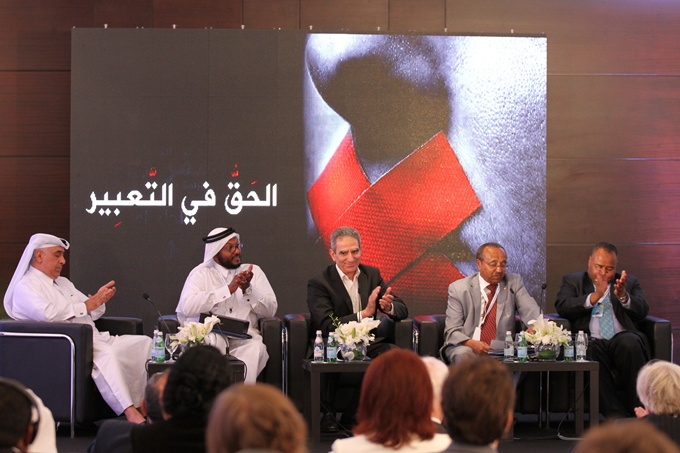
Discussants at this plenary workshop concluded that mechanisms to implement human rights are often ineffective for many reasons. First, these mechanisms are applied to certain areas of the world and not to others. Second, many of these mechanisms are caught in the trap of political interpretations. Third, there is general scepticism of human rights in the Arab world, particularly because their application is often selective. Finally, there is a serious and universal disregard for religious and moral dimensions of respect for human rights.
Dr. Obaid Ahmed Obaid, United Nations Centre Director for training and documentation of human rights in southwest Asia and the Arab region, said the Arab Spring positively impacted the protection of human rights, but there are still factors fuelling this suspicion of human rights. There is excessive political use of human rights and unhealthy relationships between human rights and religion as well as between human rights and politics. Furthermore, there is a serious lack of feasible models of human rights defenders, particularly because many are now-detained journalists and activists.
Professor Steve Crawshaw, Director of the Office of the Secretary General of Amnesty International, preferred the emphasis shift to the importance of having media agencies working to raise awareness about mechanisms of universal human rights. He gave AlJazeera as an example of a channel providing accurate accounts and documenting human rights abuses across the world.
Adam Shapiro, Campaign Manager for the Frontline Defender organisation, said that scepticism of human rights is not unfounded. The Arab world and those working with human rights must conceptualise these doubts, because those who defend human rights are often the ones facing charges and trials. He also pointed to the misuse of the institutions of international law and human rights, including the selective use of the International Criminal Court (ICC). He gave the recent example of the decision not to refer Syria to the ICC although it previously prosecuted African leaders.
Part of the change in the Arab world will be re-examining human rights abuses and implementation, but time is a necessary factor in developing feasible mechanisms to address these abuses.

